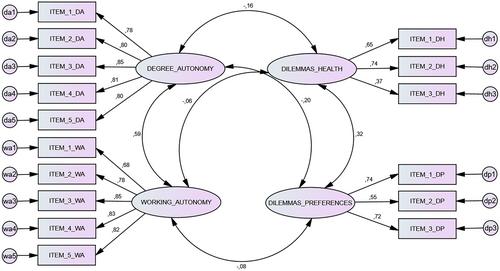Spanish version of the Maastricht Personal Autonomy Questionnaire: A validation study among community-dwelling older adults with chronic multimorbidity
Abstract
Background
Loss of personal autonomy in older adults with chronic multimorbidity is associated with worsened biopsychosocial health. In order to facilitate the standardised assessment of personal autonomy in older adults with chronic conditions, nurses could use the Maastricht Personal Autonomy Questionnaire (MPAQ).
Objective
To translate, culturally adapt and psychometrically assess the Spanish version of the MPAQ in community-dwelling older adults with chronic multimorbidity (MPAQ-Sp).
Methods
Observational cross-sectional study. A convenience sample of 884 community-dwelling older adults was recruited from 10 community centres in five health districts in southeastern Spain. Data were collected between January 2021 and September 2022. The study was completed in four phases. Phase 1: The MPAQ was translated into Spanish. Phase 2: A pilot test of reliability and content validity was conducted. Phase 3: To test the dimensionality of the tool, an exploratory factor analysis (EFA) was conducted. Phase 4: a final validation study was conducted which included a confirmatory factor analysis (CFA) and assessed the validity (content, criterion and construct), reliability and readability of the MPAQ-Sp.
Results
The average age of the sample was 75.89 years (SD = ±8.04). Their mean number of chronic conditions was 4.84 (SD = ±2.19) and 67% were women. The MPAQ-Sp is comprised of 16 items distributed in four subscales: [1] the ‘Degree of autonomy’ scale, [2] the ‘Working on autonomy’ scale, [3] the ‘Dilemmas: health over preferences’ scale and [4] the ‘Dilemmas: preferences over health’ scale.
Conclusions
The Spanish version of the MPAQ-Sp is a valid and reliable instrument to assess personal autonomy in Spanish-speaking, community-dwelling older adults with chronic multimorbidity.
Implications for Practice
The use of the MPAQ-Sp would allow researchers and healthcare professionals to identify a loss of personal autonomy among Spanish-speaking community-dwelling older adults with chronic multimorbidity.


 求助内容:
求助内容: 应助结果提醒方式:
应助结果提醒方式:


